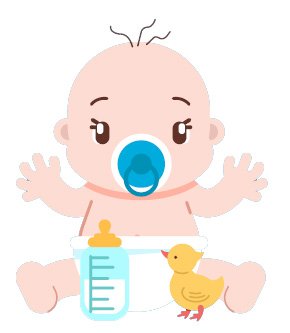
Healthy Gut = Healthy Children – The key to a strong and active toddler
- bey0ndM@gz!ne
- November 6, 2021
- Default, Health-Wellness
- 0 Comments
We are not alone! We’re not just ‘we’
Before your thought goes to aliens or extraterrestrial organisms, let’s take a look closer home. I’m talking about our very own bodies. Yes, you read it right!
Our bodies are host to trillions of microorganisms that “coexist” within us. As infants, we are first exposed to external microorganisms during delivery and then through our mother’s breast milk.
The human microbiome consists of microbes that are both helpful and harmful to the body. A healthy body has a balance of ‘good’ and ‘bad’ bacteria. However, exposure to infections, dietary patterns/lifestyle habits, prolonged use of antibiotics, etc. can cause a disturbance in this balance. This is called Dysbiosis and it makes the body more susceptible to diseases.
The microbes particularly existing in our guts have been scientifically proven to play a key role in our health. Various diseases like obesity, diabetes, hypertension, Parkinson’s disease, Autism, Inflammatory Bowel Disease, etc. are proven to have direct correlation to dysbiosis in the gut microbiome.
Why it’s important to focus on your child’s gut health.
Now that we know the gut microbiome takes its shape right from birth, it’s evident that we need to take care of their gut health from the get go. A child’s gut microbiome is established over the first few years of life. And each of us has a unique microbiome composition. Our diet is responsible for 75% of the variation in this. As we age, factors such as dietary intake, lifestyle and environmental conditions continue to affect our microbiome balance.
Nurturing their gut microbiome at the early stages can help optimize their health not just in childhood but also as they grow older. So when we work on building on good gut health in children, we are actually setting them up for a lifetime of wellness.
How can I support good gut health in my child?
From birth till age 5 is a great time to build a strong and healthy gut in a child as during this time their microbiome composition stays flexible.
Below are some ways to aid the growth of beneficial bacteria in your child’s gut:
- Opt for Vaginal delivery over a Caesarean unless there’s a medical need.
- From 0-6 months of age, focus on exclusively breastfeeding your child. Numerous studies prove that exclusively breastfeeding for up to 6 months of age establishes a healthy microbial community in your little one’s gut. It is also recommended to breastfeed your child until 2 years or beyond for various nutritional and health benefits for both the mother and the baby.
- When your child is ready to eat solid foods, focus on introducing yogurt and fibre-rich foods such as bananas, oats, quinoa, lentils and beans.
- Avoid self medication and excessive use of medicines and antibiotics, specifically in the first two years of life.
- Cut down on excess sugar, junk foods, caffeinated drinks, soda and fatty foods.
- Ensure proper hydration for your child
- Encourage outdoor exposure. Don’t mind your kids’ hands getting dirty with mud or touching pets.
- Encourage your children to play outdoors with nature in order to develop a natural immunity towards germs. Do not fret about over sanitizing their hands.
Overall, an increased intake of certain naturally available food items can go a long way in maintaining the balance of good bacteria not only in children but also in adults. Items such as yogurt, kefir, fermented vegetables, kombucha, asparagus, jicama, bananas, oats, honey, lean meats, whole grains, lentils and more can really help you improve your gut health.
 Encourage outdoor exposure. Don’t mind your kids’ hands getting dirty with mud or touching pets. Encourage your children to play outdoors with nature in order to develop a natural immunity towards germs.
Encourage outdoor exposure. Don’t mind your kids’ hands getting dirty with mud or touching pets. Encourage your children to play outdoors with nature in order to develop a natural immunity towards germs.
Factors influencing microbiome in the child’s growth phase
- Vaginal birth canal
- Delivery method
- Feeding Method
- Antibiotics
- Environment
- Genetics
- Diet
- Environment
- (3+ years)
- Diet
- School
- Lifestyle
- Hormone
- Diet
- Lifestyle
- External stress
 Nitya Lakshmi
Nitya Lakshmi
Hailing from India’s IT hub, Bengaluru, Nitya is a healthcare researcher in Hong Kong’s leading university, HKU. Apart from research, she is passionate about writing, exploring Hong Kong, and co-founding a biotech venture in Hong Kong. Besides work, she enjoys being around her toddler son, hiking and travelling with family.









